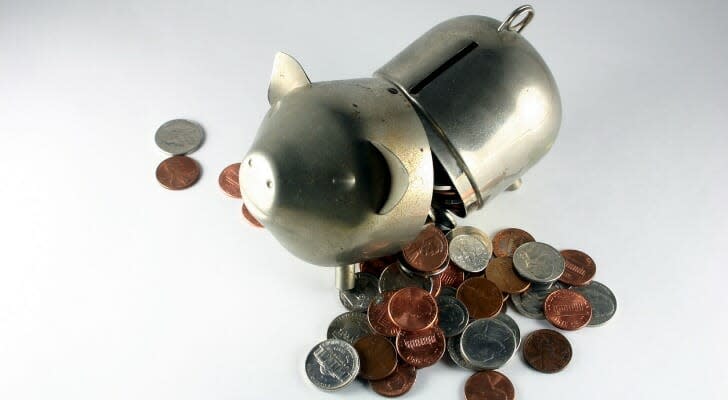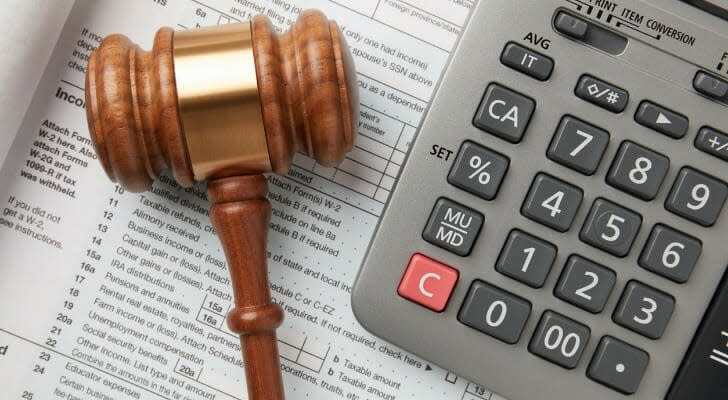Should You Take Money From Your 401(k) to Pay Debt?
Tax benefits and automatic deductions make a 401(k) plan one of the most powerful tools for retirement savings. Between your regular contributions, matching contributions from your employer and the power of compound interest, you have a prime opportunity to accumulate wealth for your golden years.
Retirement planning may take a backseat if you’re carrying a significant amount of student loans or credit card debt though. In fact, you may find yourself considering taking money out of your 401k to pay debt. While that could reduce your financial obligations in the short term, there are some pros and cons to evaluate before making a withdrawal.
Are You Eligible to Withdraw Money From a 401(k)?
First, you’ll have to determine whether you are able to use your 401(k) savings to pay debt. Your plan administrator and the IRS guidelines are great resources but generally, 401(k) distributions are allowed if:
You reach age 59 1/2
You die, become disabled or are otherwise withdrawn from the workforce
Your employer terminates your plan and doesn’t replace it with another
The distribution is related to a financial hardship
That last one is important because not all employers allow hardship distributions from a 401(k). Even if your plan does allow hardship distributions, you must demonstrate that the funds will address an immediate and heavy financial need. That includes things like:
Paying medical expenses for yourself, your spouse or your dependents
Purchasing a principal residence
Paying tuition, educational fees or room and board for yourself, spouse or dependents
Avoiding eviction or foreclosure
Funeral expenses
Keep in mind that every employer is different. Even if your employer allows a hardship distribution, they may not recognize each of these scenarios. In most cases, you won’t be able to contribute to your plan within six months of taking a hardship withdrawal.
Early Withdrawal Penalties
Typically, a 10% penalty applies when you take money from a 401(k) or other qualified retirement plan before reaching age 59 1/2. Early withdrawals are also subject to regular income tax. And as with most plans, you’re only able to withdraw the amount you contributed to the account rather than any employer-provided cash.
Using a 401(k) Loan to Pay Off Debt
If you aren’t eligible for a hardship distribution and want to avoid the stiff tax penalties associated with cashing out your plan, you may have a third option. Some companies allow plan participants to borrow from themselves using a 401(k) loan.
These loans tend to carry a lower interest rate than alternative options, are not taxed and do not impact your credit score. Even if you have to pay an origination fee, the fee is likely lower than the tax penalties you would face from an early withdrawal. Yet there are some downsides to a 401(k) loan.
The most you can borrow against your 401(k) is 50% of your vested account balance, or $50,000, whichever is less. In other words, you can’t just pull all of your retirement savings out. You can have more than one loan out at a time, but the total amount owed can’t be more than the limit. Most 401(k) loans must be repaid within five years. If you’re married, your employer may require your spouse to consent to the loan.
Plus, your employer may temporarily suspend new contributions into the plan until you’ve repaid the loan. That means that while you’re paying back what you’ve borrowed, you’re not adding anything else to the balance.
The money you withdraw also doesn’t have an opportunity to benefit from compounding interest, which could stunt your nest egg’s growth. And if you separate from your employer before the loan is repaid, the IRS requires you pay the remaining loan balance in full within 60 or 90 days. If you don’t repay it in time, the entire amount becomes a taxable distribution subject to income tax and the 10% early withdrawal penalty.
When Does Taking Money Out of a 401(k) to Pay Debt Make Sense?
To determine whether withdrawing from your 401(k) makes sense, crunch the numbers. Compare the interest rate on your debt with the tax penalties you would face. High interest rates on significant debt may necessitate drastic measures. If you’re considering a 401(k) loan, make sure you have a disciplined financial plan. 401(k) loans can also be a powerful option for eliminating high-interest debt, but they can still set you back.
Be honest about where you stand, too. If you have a relatively large starting balance, using your plan might not make a huge difference in the long run. If you’re already behind on saving, however, taking money from your 401(k) could create a big problem come retirement. There is also an emotional element to borrowing against your retirement. Once you tap those funds, it could be tempting to do it again.
The Takeaway
Using your 401(k) as a piggy bank may not seem like such a bad thing. Depending on what you owe, you could wipe out all of your debt at once. But taking money out of your 401(k) to pay debt could lead to tax penalties and delayed retirement. Worse yet, you could put your long-term financial health in jeopardy. Consider your options carefully and ensure you understand the implications of each before you decide.
Tips for Balancing Debt and Retirement Planning
Saving for retirement while paying off debt can be challenging. A financial advisor can help you develop strategies for both. An advisor can also discuss the potential tax implications if you decide to tap your employer-sponsored plan. SmartAsset’s free tool matches you with financial advisors in your area in 5 minutes. If you’re ready to be matched with local advisors that will help you achieve your financial goals, get started now.
Explore alternatives to a 401(k) withdrawal before making a final decision. There are numerous options that may be a better fit, such as using a 0% APR balance transfer credit card to consolidate debt, getting a personal line of credit or borrowing against your home equity. Each of these can be used to pay down debt, while leaving your retirement savings intact.
Photo credit: ©iStock.com/nesneJkraM, ©iStock.com/Bill Oxford, ©iStock.com/Anchiy
The post Should You Take Money From Your 401(k) to Pay Debt? appeared first on SmartAsset Blog.



